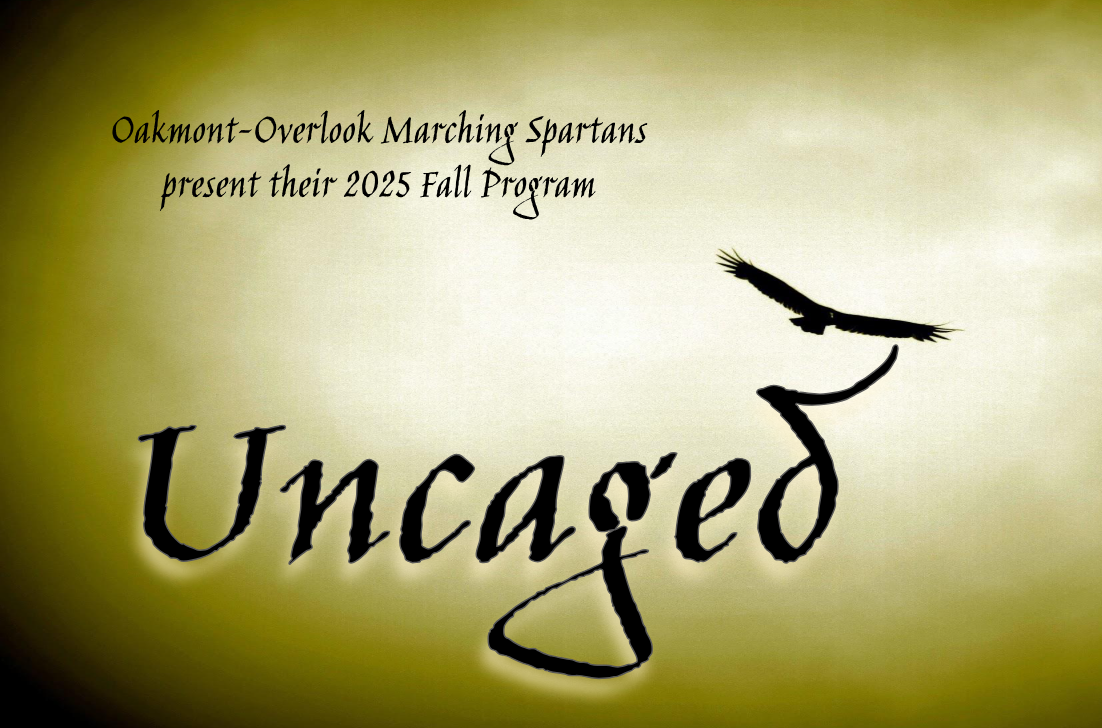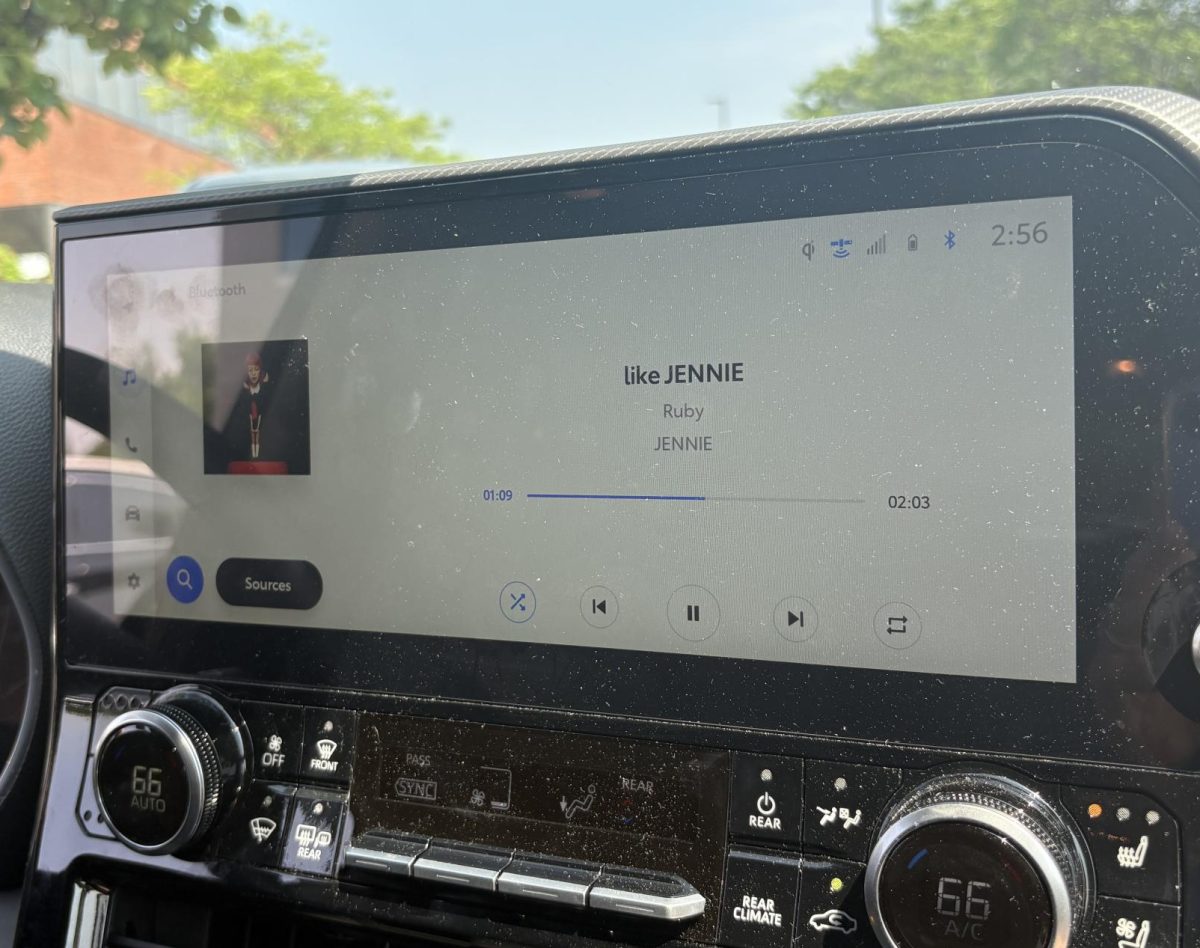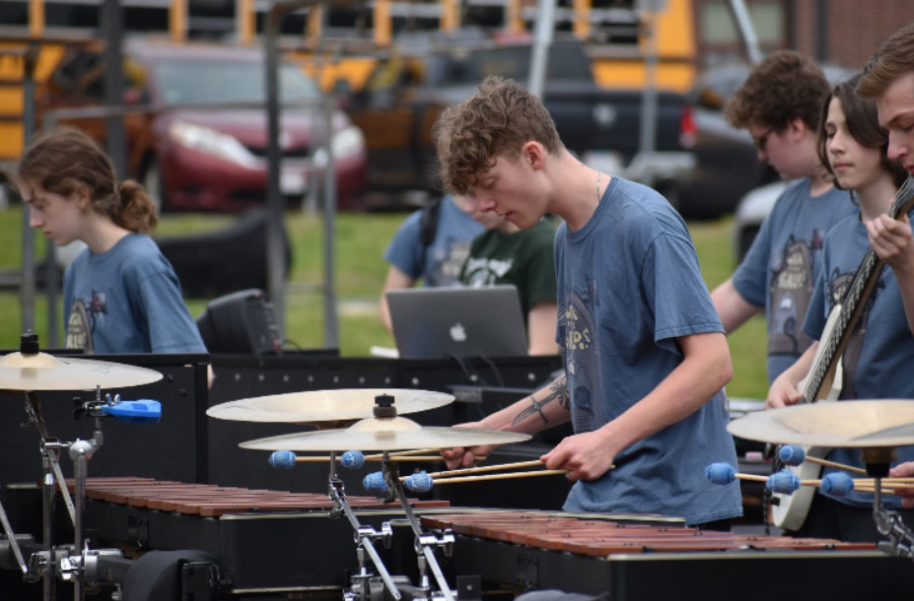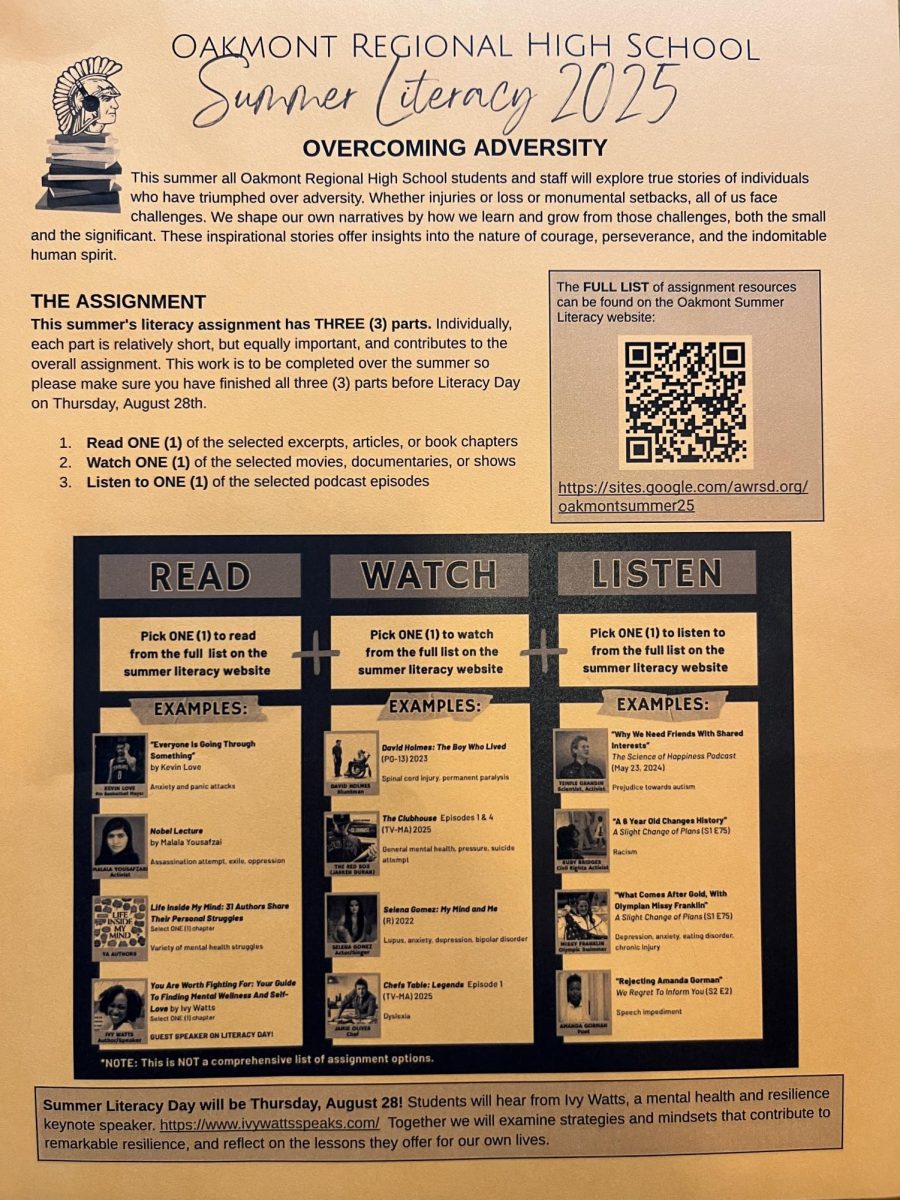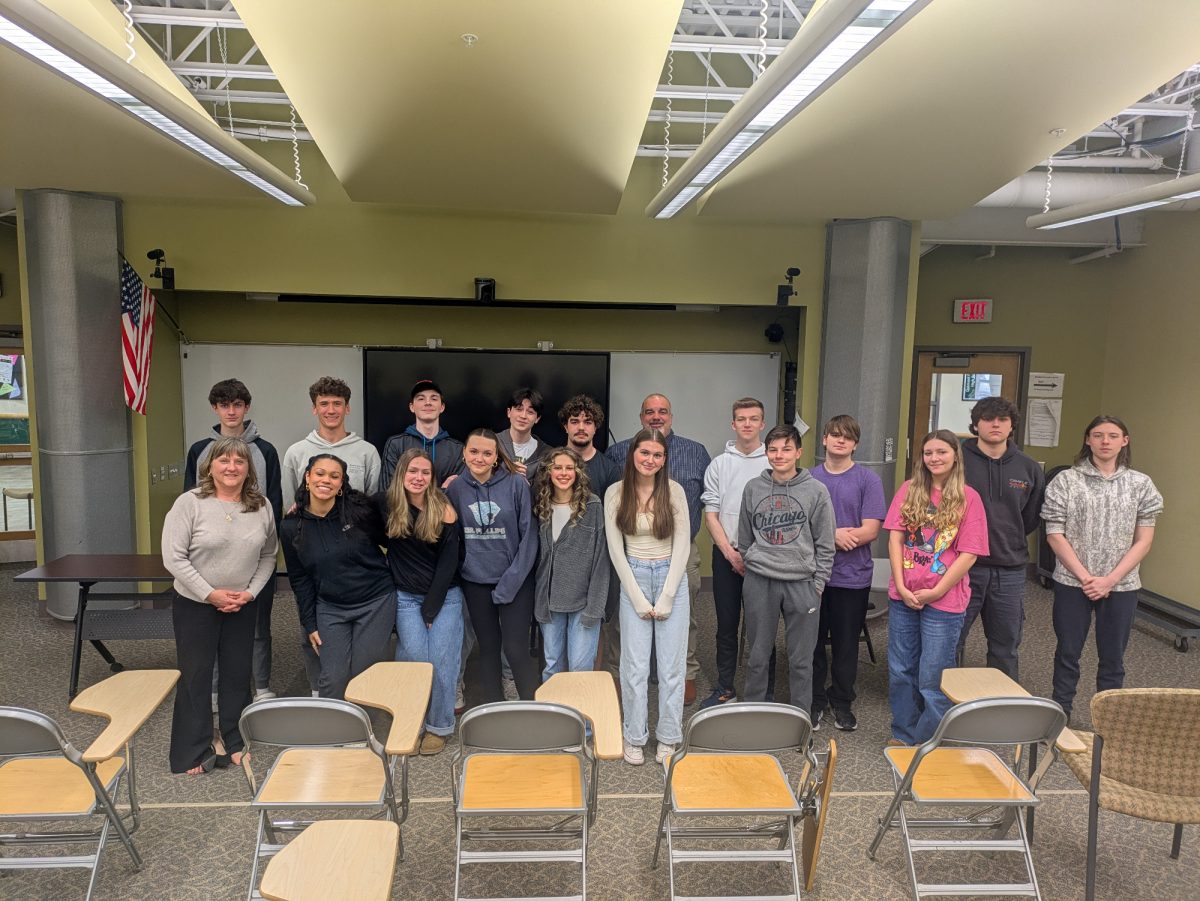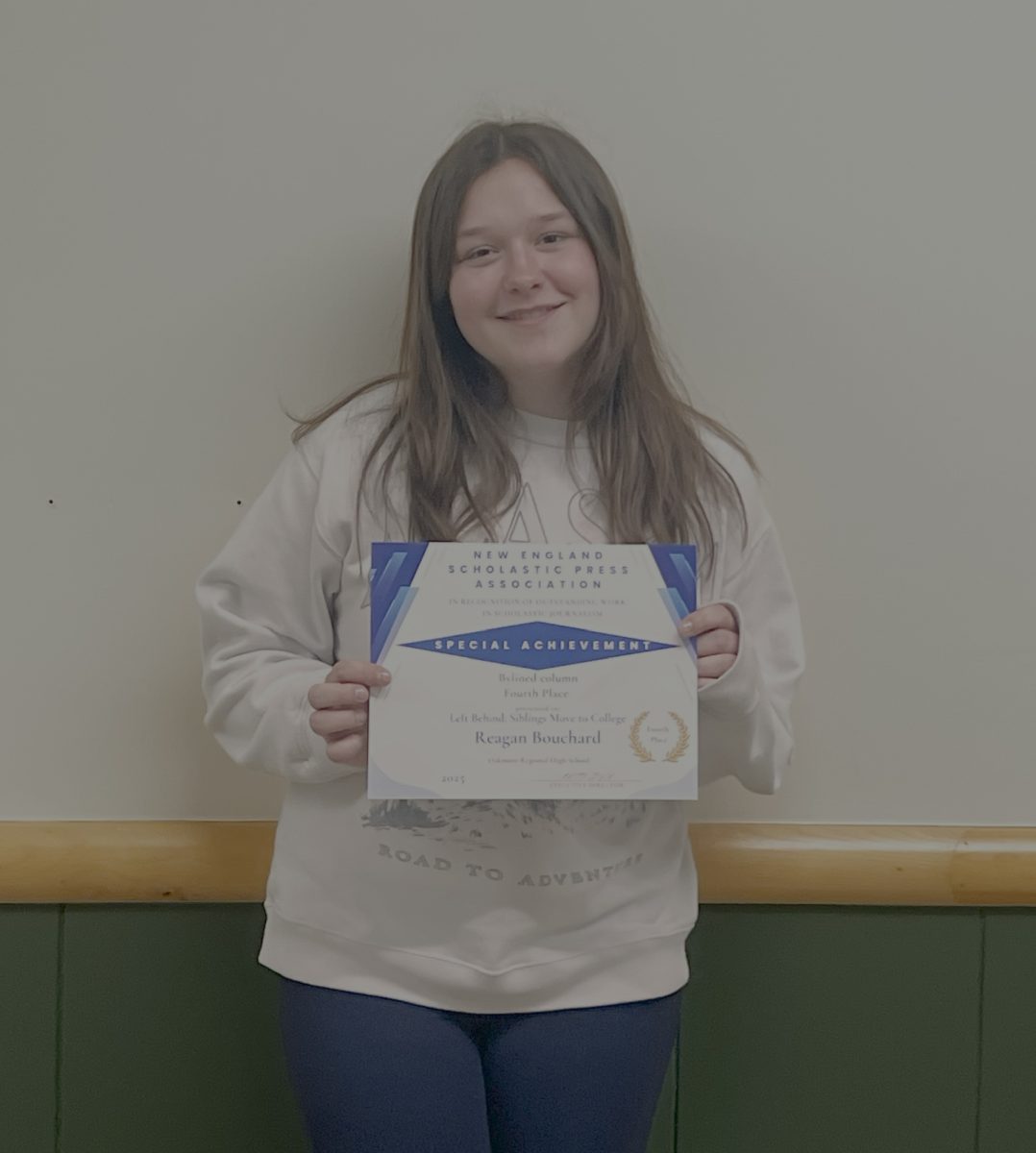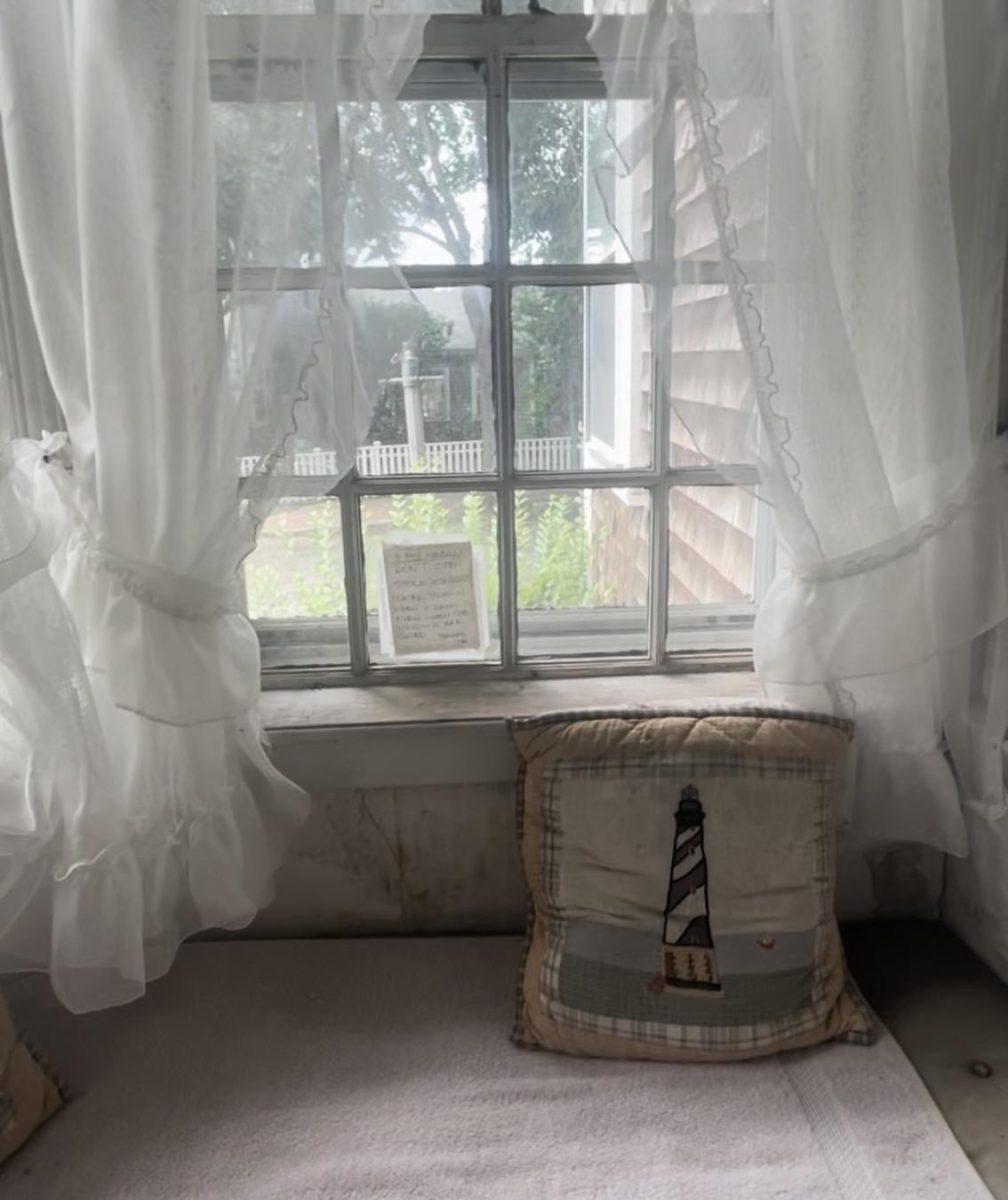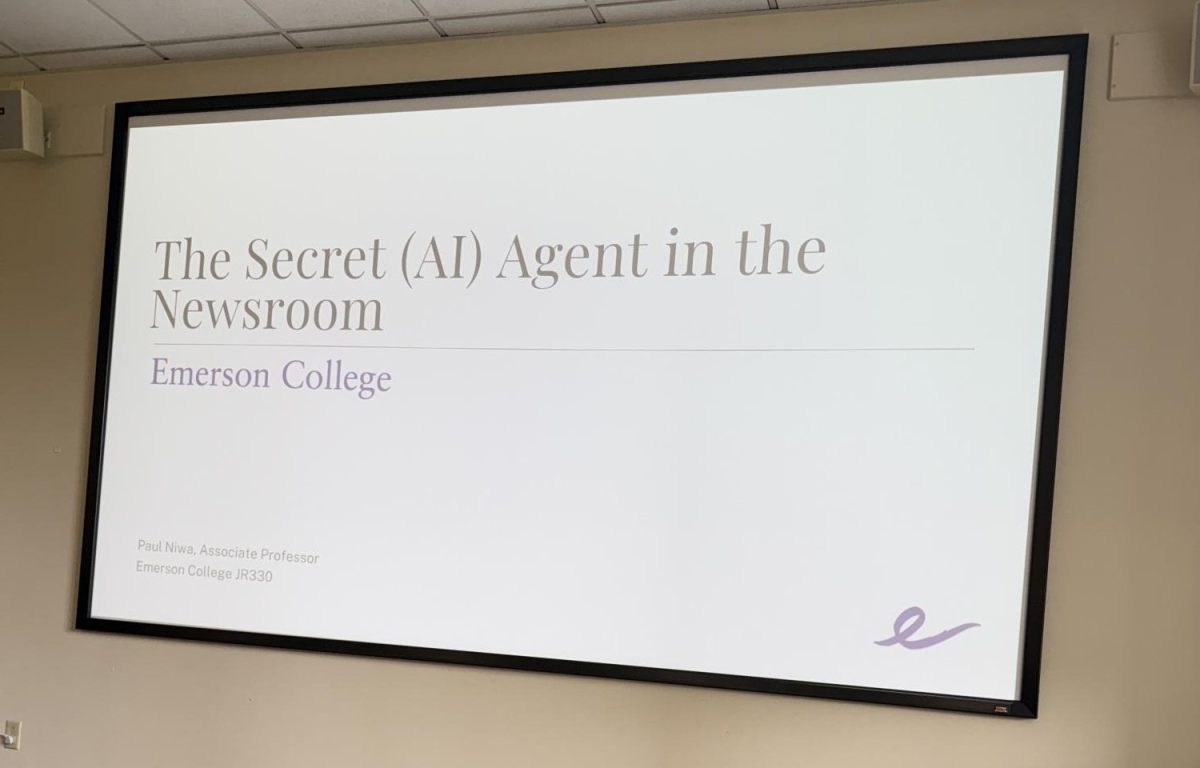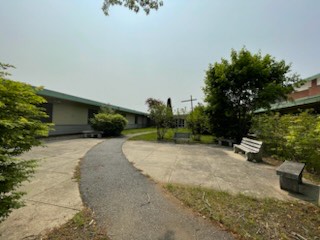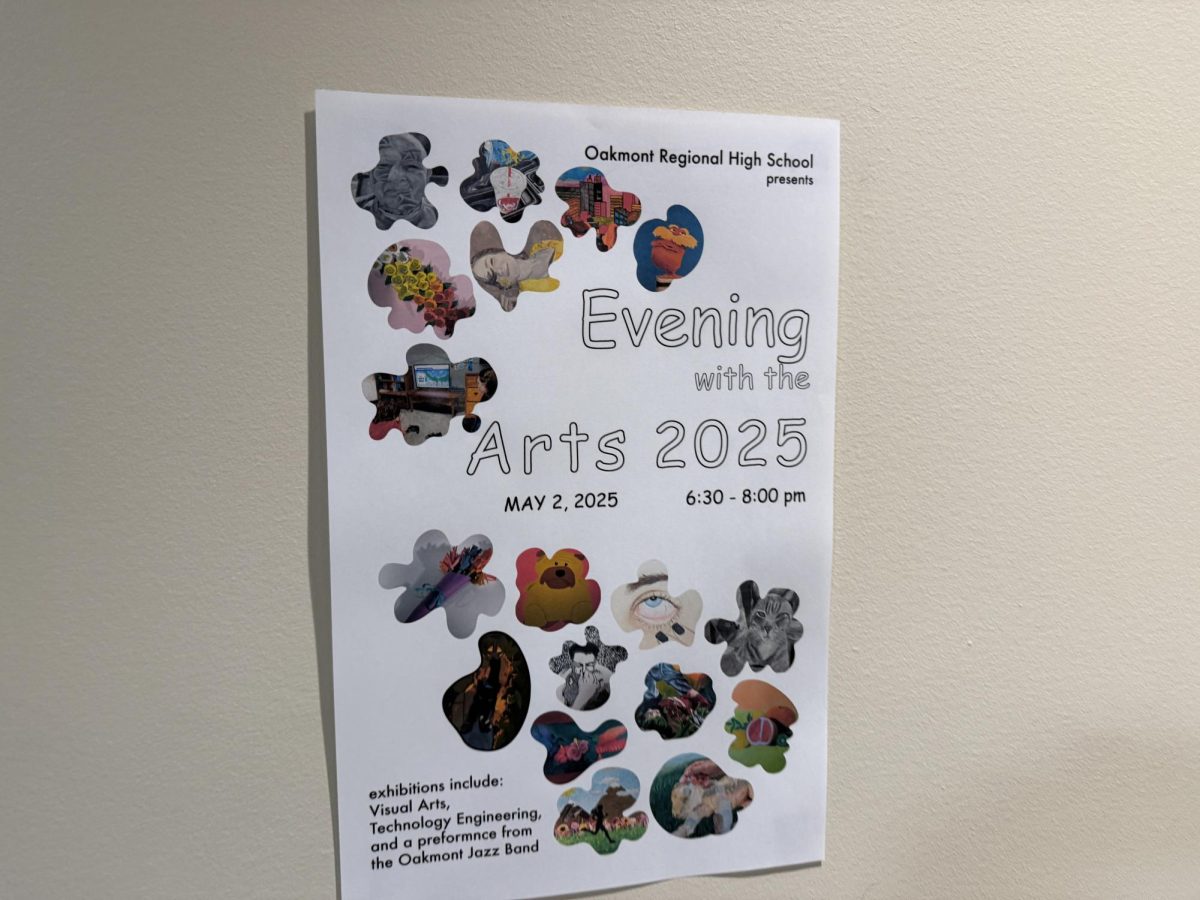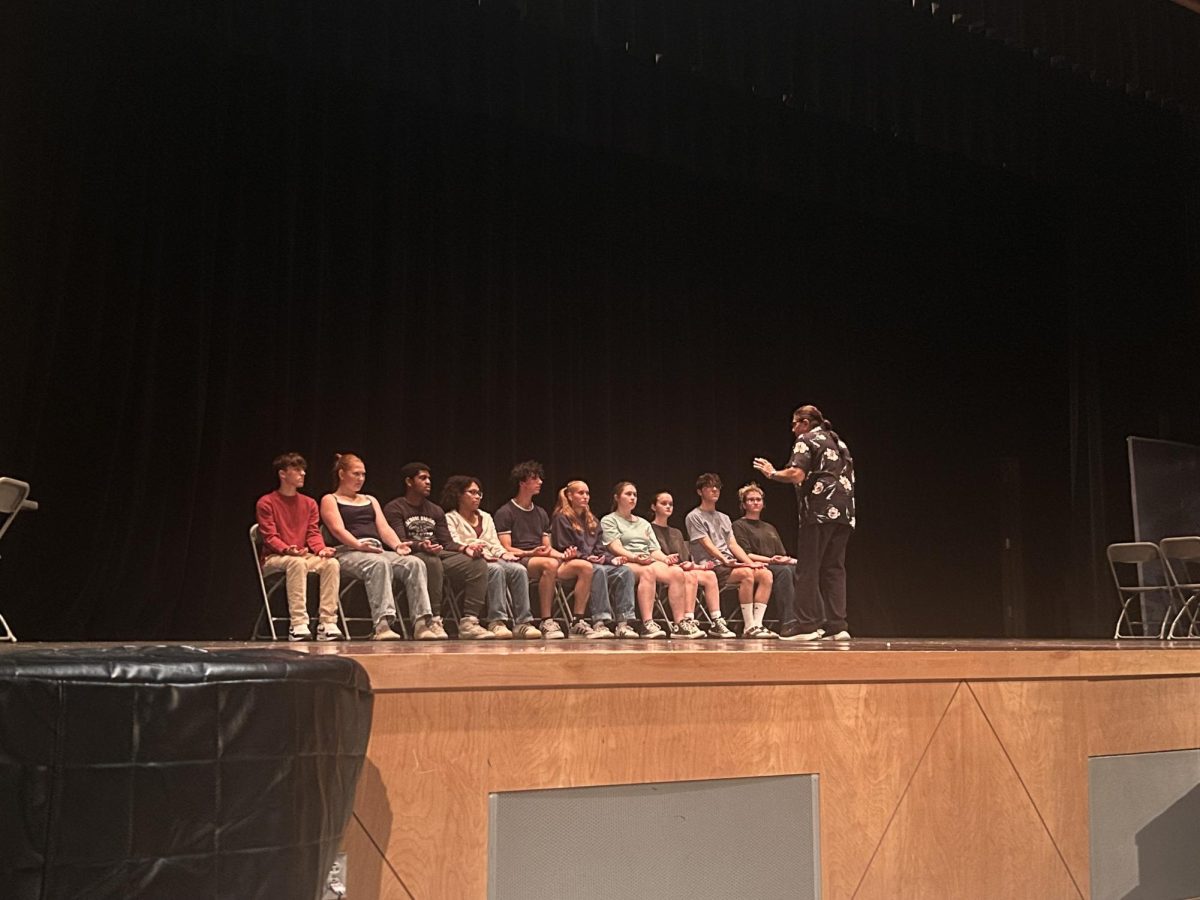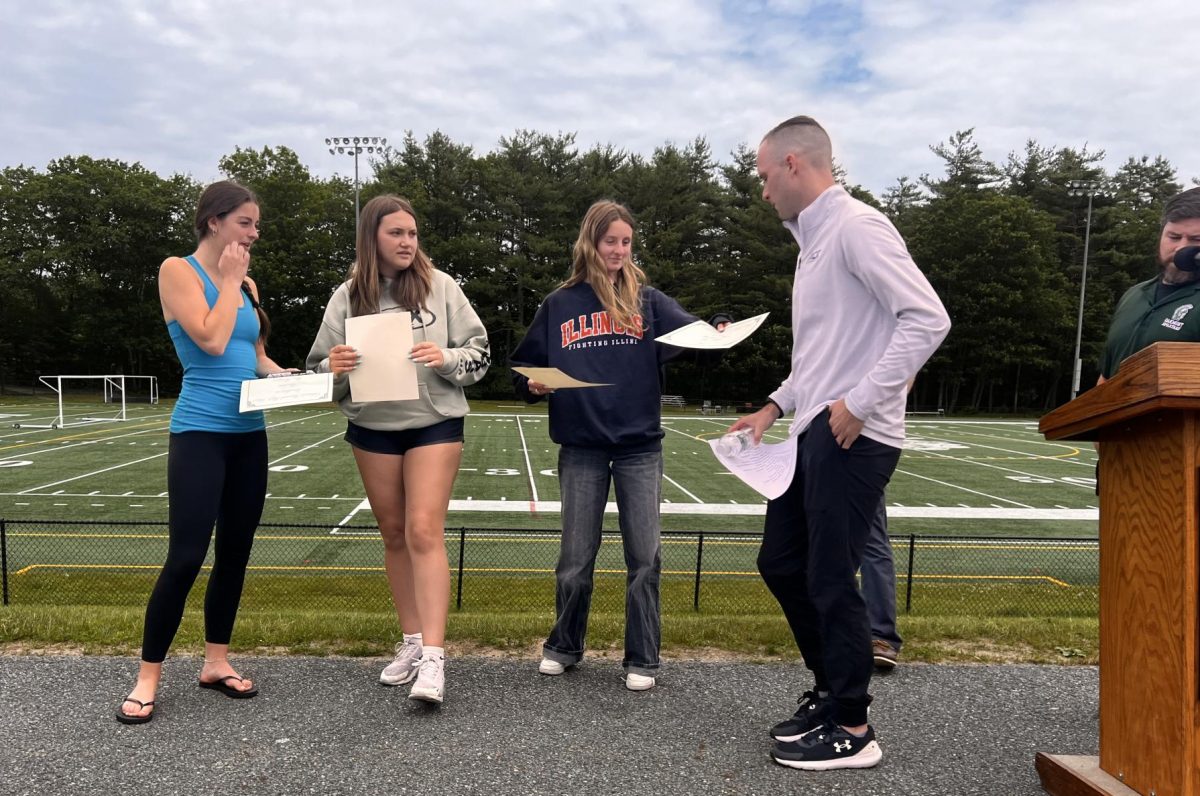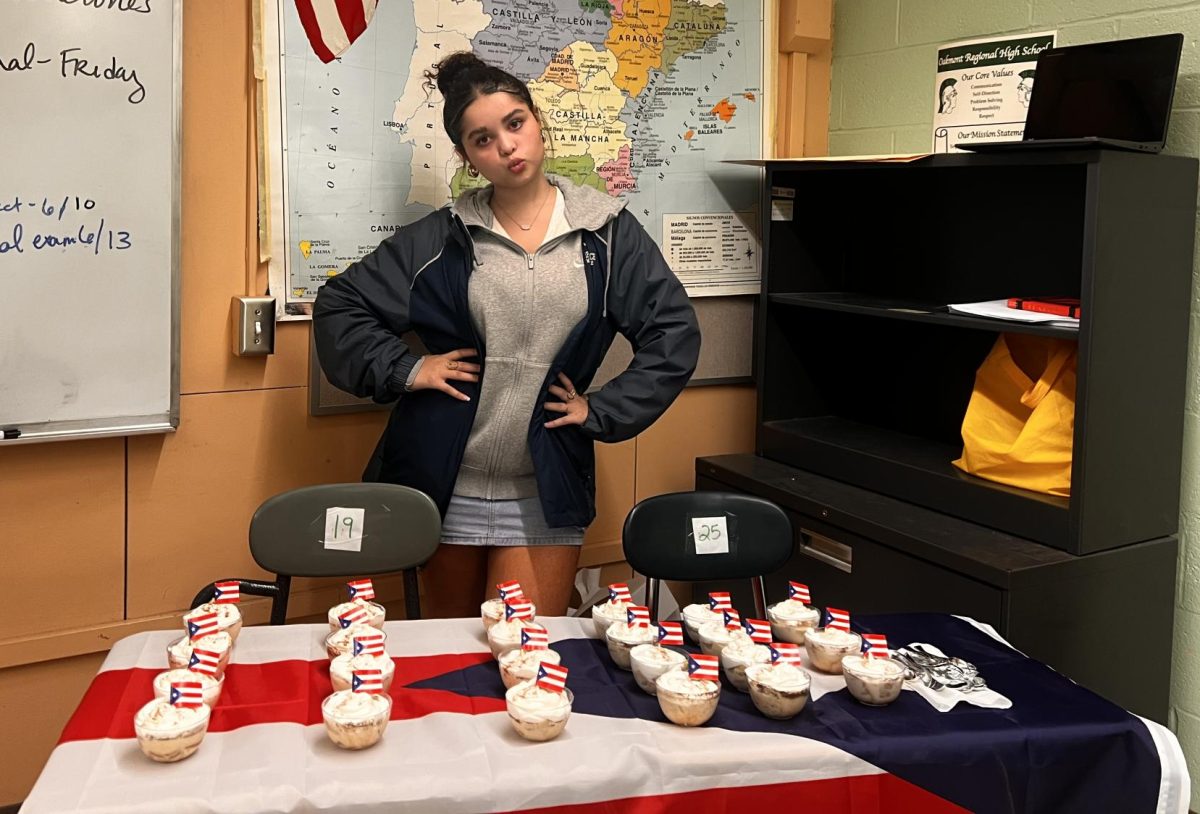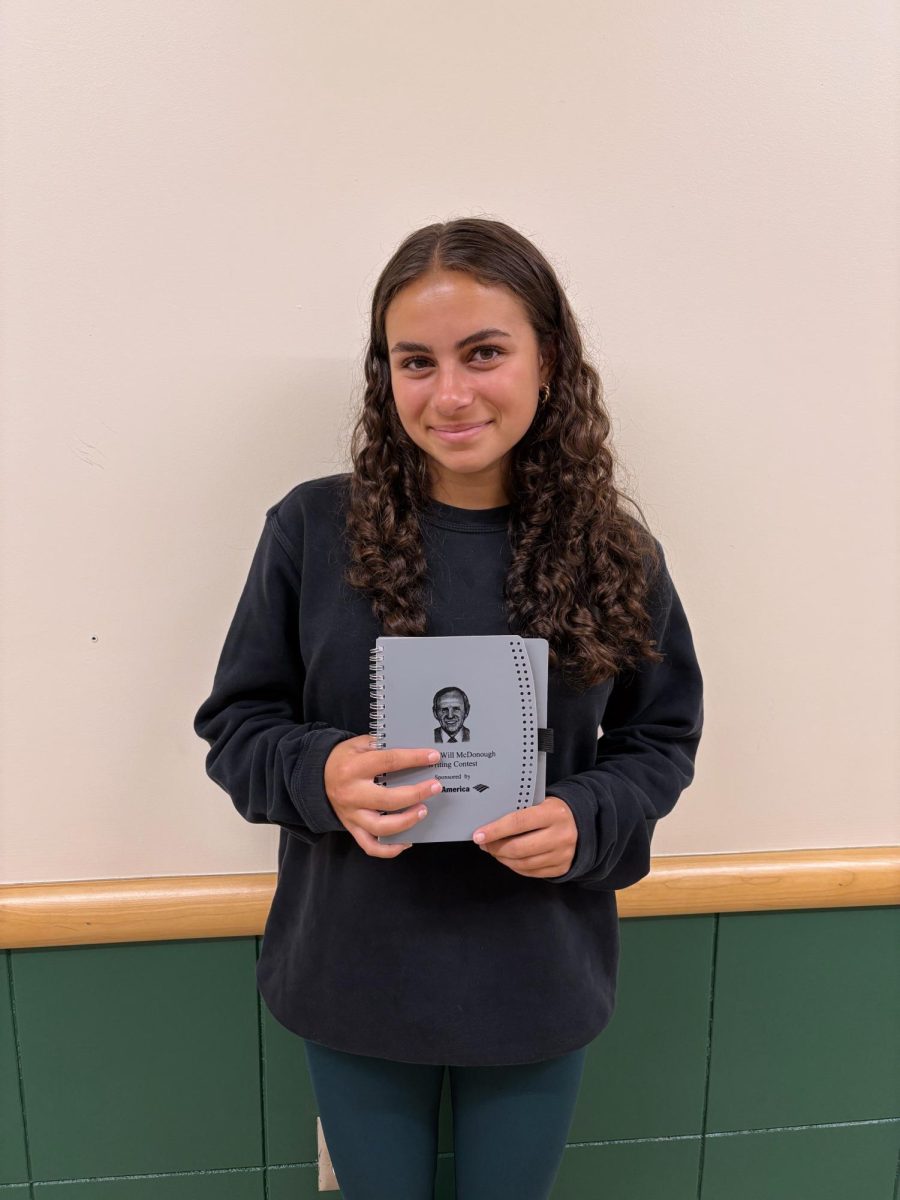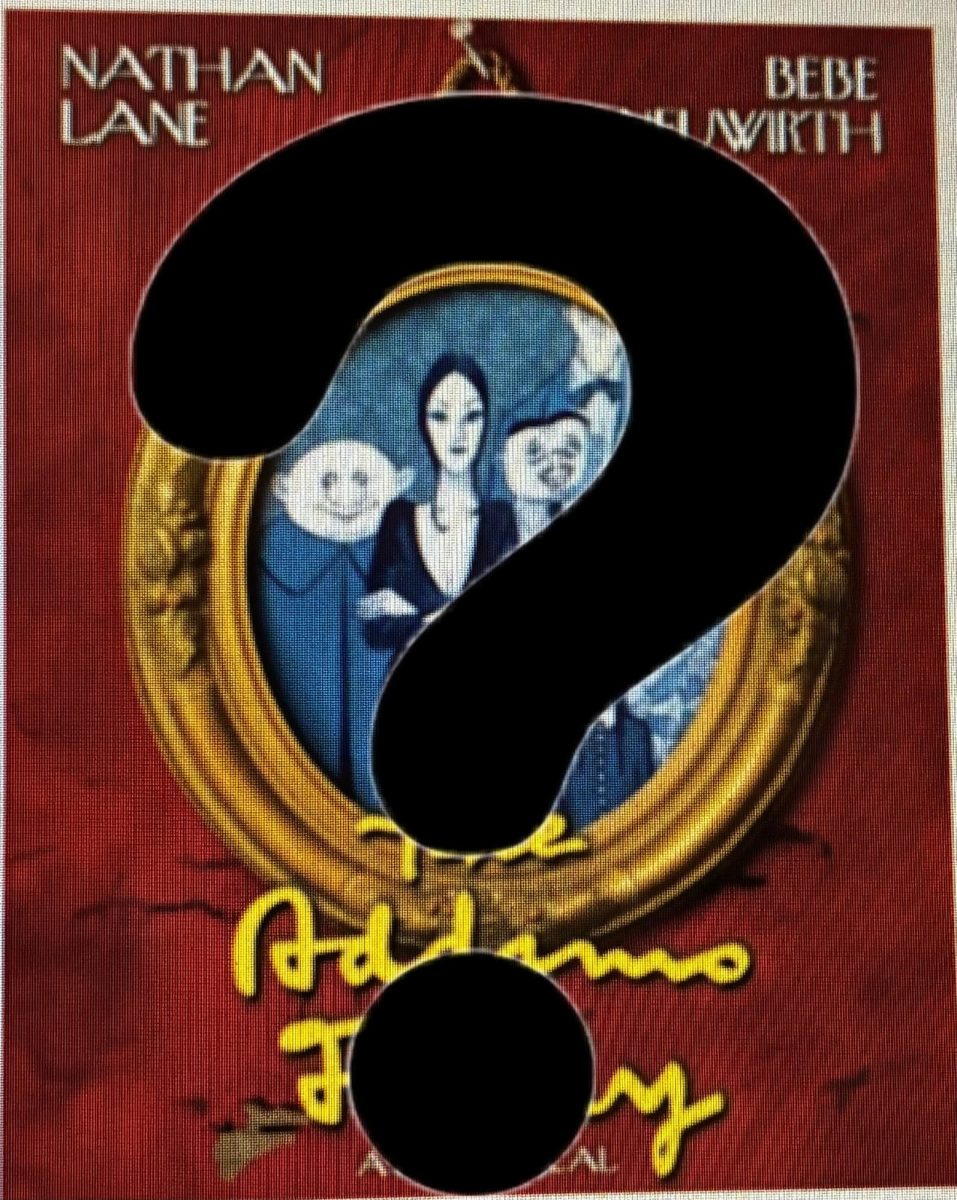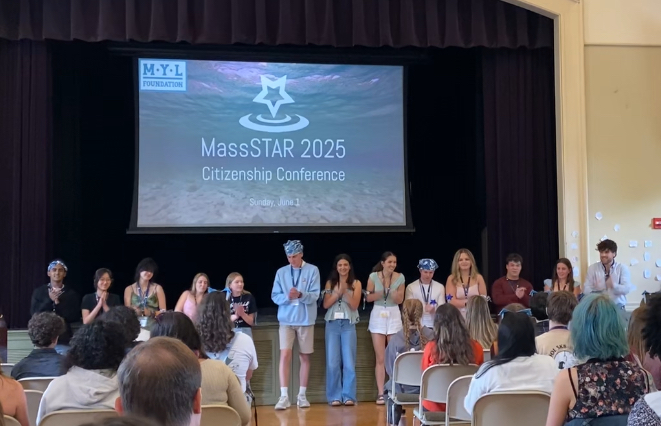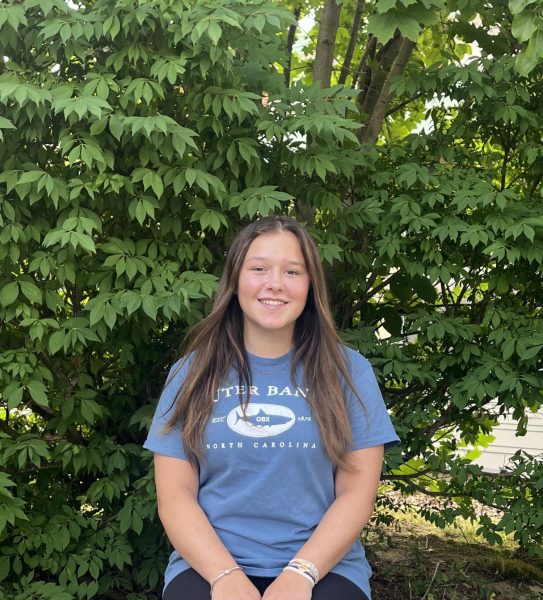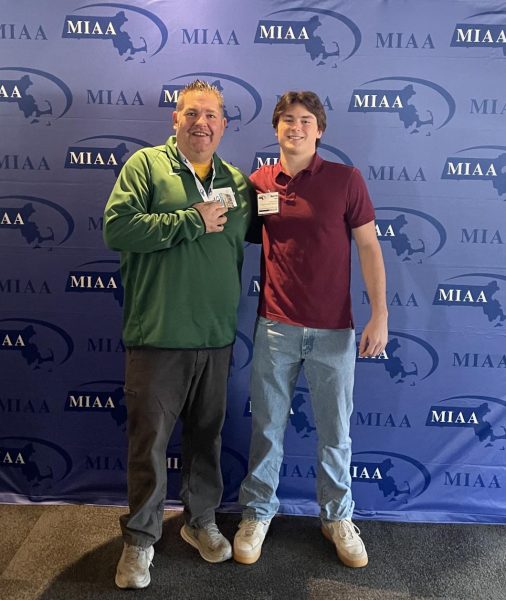
A contest comprised of many applications throughout the state was won by one of our own Oakmont students. The Massachusetts Interscholastic Athletic Association (MIAA) hosts an essay contest each year with different sports themes. This year’s theme was “Sportsmanship Beyond the Game: High School Athletes as Positive Role Models.”
Senior Harris Fagan won second place in the annual contest with his essay about molding younger athletes. He focused on how he shows sportsmanship to the younger generations, creating leaders from the beginning. Within his essay, he highlights how congratulating or hyping the kids up, playing sports with them, and showing them how to be responsible by volunteering can help build these leadership skills.
Inspiration for this essay came from an experience Fagan had in the fourth grade where one older kid believed he would become a good athlete one day. Fagan says, “That experience still has an effect on me today.” This proves how one small interaction could stay with someone for years and even motivate them throughout their lives.
Everything comes with challenges, even award-winning essays, and for Fagan the biggest one was procrastination. He recalls, “I continued to push off the essay. I would just come up with an idea and then give up. Eventually, when the day of the deadline came, I wrote for 2 hours and pushed my limits to get it done.” By pushing through these obstacles, he was able to create an essay that would lead him to Gillette Stadium.
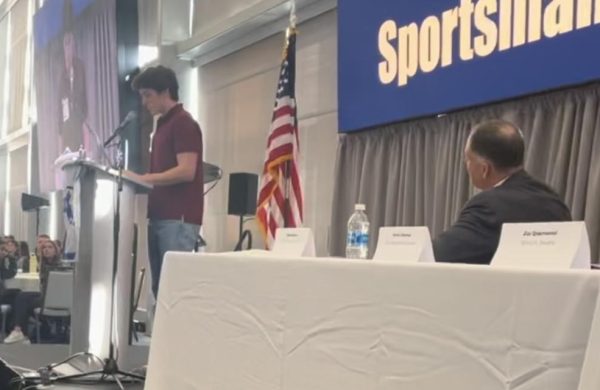
Winning second place meant standing in front of an audience of around 1000 people at Gillette to read his essay. First, he had the opportunity to be introduced to some people who worked for MIAA and the leader of the essay contest- Donna Harrington. A few great speakers, who had previously been awarded, gave speeches before Fagan went on the stage.
Talking in front of such a large audience can be nerve-wracking for anyone. Luckily, journalist teacher Mark Nevard made him practice speaking many times before heading to Gillette. Nevard also helped in multiple other ways. Fagan goes on, “He was the one who told me I should write the essay. He helped me with my word count of 500, using parallelism throughout the essay and grammatical errors, and helped me overall be clear and effective with my message.”
As one of Nevard’s journalism students, Fagan has been an active participant to Oakmont’s paper. Nevard shares, “Harris made an immediate impact in Journalism class, writing for The Oakmonitor. He can write in so many different modes, which was put on display in his winning essay, combining his command of writing mechanics and his emotional memories of sportsmanship.” Nevard mentions how it is a perfect combination of passions- writing and sports- for Fagan.
He has been an athlete for years and athletic director, Eric Dawley, comments on Fagan’s writing accomplishment, “Any time one of our athletes has success outside the realm of athletics, we are proud!” Dawley is happy with Fagan’s effort and dedication to his work even if it is outside the sports realm.
Fagan received attention, an MIAA award certificate, and a $200 cash prize for his efforts.
Knowing him as an athlete and a talented writer, what will his plans be for the future? With his gifted skills in literature, he hopes to go to college to study journalism or something related to English. He also dreams “to travel the world and write about what I experience as I interact with different cultures and places, also while writing music.”
There are so many different sides to this Oakmont athlete, as Dawley says, “Harris is an extremely well-rounded young man and is a perfect example of what it means to be a student-athlete.” With so much to offer, Fagan will continue to make impacts with his writing.
Even if Fagan said he was surprised to see that he had won the contest, he deserved the recognition he received. He offers some advice to anyone else entering the contest, “be original and not conform to anyone else’s writing style; make it your own.” He joins former Oakmont student McKinley Chabot in winning the MIAA sports essay contest. Congratulations Harris Fagan on this amazing achievement!
Harris Fagan’s essay:
Molding Young Athletes
As kids, everyone has role models; we all aspire to be something. Reminiscing my youth football days, I remember looking up to the high school football team. Whenever one of the ‘big kids’ complimented or hyped me up, it made me want to be an even better version of myself. I always wanted to prove something to somebody. As I got older, I realized that playing for the younger athletes and inspiring them was more important. These are the same kind of kids I was: coachable, motivated, and emotionally adapting. If I could lead these kids to become the best versions of themselves, it would better the community.
At my school, we have a unique tradition – at every home football game, a couple of youth athletes are selected to join the captains at the coin toss. As a captain, I am among those youth athletes, and at that moment, the amount of inspiration the kids feel is beyond words. The young athletes want to be exactly like us; it is simple: they look up to us. Although you wouldn’t expect it, a simple “What’s up, little man” or “Let’s get this” sticks with the kid. I try to put myself in their shoes every game and see how they feel; I still remember when this scenario happened to me.
I stayed around shortly after my 6th-grade practice – running routes- and a high schooler saw me from a distance. He said to me shortly after, “You are gonna be crazy good someday.” The impact this kid had on my life can’t be put into words, but whenever I get the opportunity to spread the same message, I tell kids the same thing. What matters most to me on gameday is putting a smile on those kids’ faces and giving them hope.
Coming from a small town, the community is filled with familiar faces; that being said, every action I take is being watched. By volunteering at local food drives, coaching at the youth football clinic, and helping at local historical societies, I set an example for the younger children to be an essential part of the community. Given our small community, every kid – including myself – goes to the same place throughout the summer: The local “Lake Club” or “Crocker Pond.” Although I’m not the greatest quarterback or basketball player, and awful at soccer, I still look forward to being the ‘big kid’ these kids want to play with. Not only do I get to have a laugh or have some fun, but I also can facilitate these kids and allow them to play to the best of their abilities while keeping it fair and organized.
The world of sports continues to evolve, professional athletes must realize their impact. On a personal level, as a high school student-athlete, it’s important that I show sportmanship on and off the field that creates more and more admirable leaders within the younger generation that will strengthen our community.


